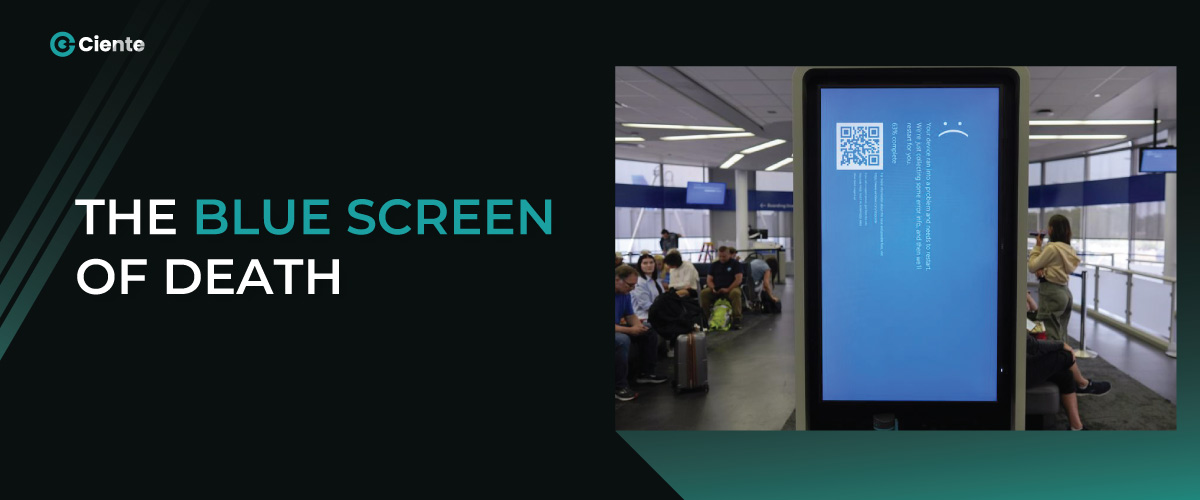Championing cybersecurity can be complex as cyber-attackers continue to infiltrate business network securities. Thriving businesses are finding new ways to foster resilience.
Cybercrimes are increasing in frequency and intensity. CISOs must prioritize safeguarding organization’s data, applications, and network to reinforce business operations in this unpredictable realm. Traditional cybersecurity techniques no longer help when it comes to malevolent hackers who are constantly trying to infiltrate your security networks. You require robust cyber-resilient strategies that ensure uninterrupted business operations in case of a cyber-attack.
Security leaders must build cyber resilience by incorporating recovery and continuity strategies and protection to stay ahead. This approach entails investing in people, processes, and technology to mitigate the effects of cyber incidents and ensure continued operations.
Safeguarding against cybersecurity threats means adopting a holistic approach that goes beyond basic protective measures. By being cyber resilient, organizations can reduce the impact of an attack and ensure operational excellence.
Is your enterprise cyber-resilient?
In today’s digitally interconnected era, the exponential use of new technologies is the sine qua non for skyrocketing your business growth. But it is also crucial to safeguard your business from cyber-attacks to improve organizational cyber-resiliency. According to a global cybersecurity report, most organizations lack the cyber resilience needed to match their risk, with only 19% of cyber leaders feeling confident in their organization’s ability to withstand cyber-attacks. This translates to the need for businesses to focus on preventing, detecting, and responding to cyber threats for unceasing operations and ROIs.
The present-day ‘cyber-consciousness.’
Cyber resilience refers to a business’s ability to constructively integrate technologies, people, and processes to prepare an organization for unforeseen risks like sharp economic shifts, natural calamities, terrorism (including cyber and physical), and more. A survey indicates that 81% of respondents concur that the cost of staying ahead of attackers is unsustainable, compared to 69% in 2020.
Hence, organizations must foresee dynamic attack vectors by upgrading the present-day threat models. Ignoring these risks while heavily prioritizing the business ROIs could make you defenceless. In an Accenture survey amongst 4,744 executives globally, many Chief Information Security Officers (CISOs) believe they need more recognition for their contribution to fulfilling the business strategy. The Accenture survey also states that 85% of respondents agree that cybersecurity strategies are developed with business objectives like growth or market share.
Cyber resilience includes preventing, detecting, responding, and constructing effective recovery strategies if broken down into components.
This process involves implementing solid passwords and firewalls and promptly identifying threats using intrusion detection systems. Businesses need to have an understanding of their data volume and its location. By mapping your data, you can understand its significance, regulate it according to relevant regulatory requirements, and mitigate the potential risks associated with non-compliance, theft, and other unauthorized activities.
Drifting towards cyber resilient compliances
Despite the compliance function building stronger relationships, one obstacle still needs to be overcome: poor standing within the business. According to the Accenture survey, 36% of respondents believe the compliance function needs more organizational stature, making it easier to strengthen compliance. Interestingly, the challenge is more significant in industries with less regulatory scrutiny than financial services.

Organizational stature is a major hurdle for improving compliance culture and function, compared to only 25% of capital market respondents who think the same.
Strategical approach for building a cyber-resilient business
Fabricating cyber-resilient business strategies requires using new technologies, robust cybersecurity policies, training employees to recognize and respond to cyber threats, conducting regular vulnerability assessments, and implementing incident response plans.
As per the Accenture report, more than nine in ten Compliance Risk Study respondents (93%) agree or strongly agree that new technologies such as AI and cloud make compliance easier by automating human tasks, removing human error, and making the process more effective and efficient.
54% of the report‘s respondents say AI and ML technologies will strengthen compliance. Thus, investing in a cloud-based platform can facilitate the alignment of risk processes across the business, while AI can help reduce risk by automating repeatable tasks.
The Final Word
Digital transformation is a key business priority for many organizations, and cybersecurity is an integral part of it. Incorporating cyber resilience into digital transformation efforts can help organizations achieve their business goals while mitigating cyber risks. This includes identifying and managing cyber risks in new digital initiatives, ensuring cybersecurity is integrated into the design of new systems and processes, and ensuring cybersecurity is a critical consideration in decision-making.
It is time to rethink your cyber resilience tech investments wisely and reassess your cybersecurity posture to protect your personal data or intellectual property from any mishap in the future.





